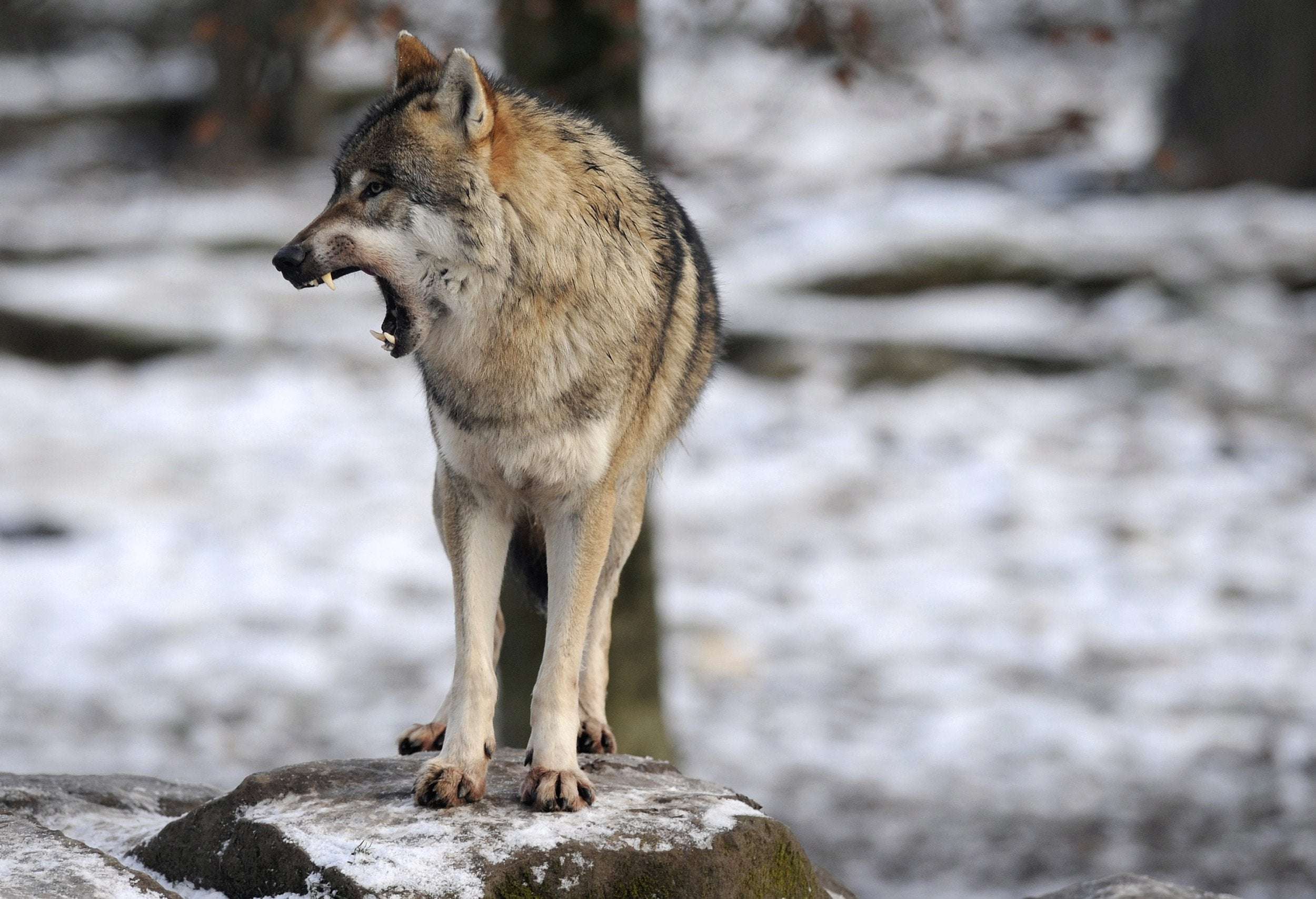A large canine has been captured by an automatic camera in Normandy, northern France. Authorities believe the animal is a European gray wolf. If their suspicions are correct, it would be the first wolf seen in this region of France for more than a century.
According to a local news report, the image of the lone canine was taken overnight on April 7-8 in Londinières—a village northeast of Normandy—on an infrared camera.
Authorities at the French Office for Biodiversity (OFB) say it is likely a gray wolf (Canis lupus lupus), but caution additional information is needed to confirm the sighting.
"Given the quality of the images provided and considering that many breeds of dogs can have a size and coat colors similar to that of a wolf, this expertise should be considered with some reservation," the OFB, which was sent images of the suspected wolf on April 12, said in a press release.
"The photo was analyzed by several people experienced in the identification of the wolf and who concluded that there was a high probability," a spokesperson from the OFB told Newsweek. "However, it cannot 100 percent be said it is a wolf... Only DNA analysis on biological material would remove doubts."
"This type of observation of an animal alone and far from the areas where the species is installed is
characteristic of individuals in the dispersal phase, a phenomenon which occurs twice
in the year, in the spring and in the fall," the OFB said in a press release. According to the OFB, young wolves leave their pack in search of a mate.
"These colonizing individuals can travel several hundreds of kilometers before settling," said the OFB. "This explains in particular certain isolated observations, far from known permanent presence zones, as in Seine-Maritime."
Historically, wolves were a common sight across much of Europe but human activity caused populations to plummet and in the twentieth century, the species became locally extinct in many regions they had been endemic.
However, recent conservation efforts have helped revive Europe's wolves, with individuals reported in almost all countries on the European mainland. In 2015, a report published by the European Union, identified 10 separate populations spanning from Portugal in the west to Poland in the east. Spain and Italy have some of the healthiest populations in west and central Europe but most can be found in the Baltic states.
The presence of wolves in France was confirmed in 1992, when individuals were spotted roaming a national park in the Alps. According to the International Wolf Center, a research and educational organization, populations have expanded from Italy to Mercantour in south-east France and further northwards along the French Alpine chain.
In June 2019, the OFB reported the number of wolves had increased to an estimated 530 from an estimated 430 the previous year—making it likely the species has crossed a threshold of 500 individuals needed to ensure the sustainability of populations in the country.
"We now consider that the wolf is no longer a species at risk of extinction, which is a good thing in terms of biodiversity," Agriculture Minister Didier Guillaume said at the time, according to thelocal.fr.
While conservationists at the OAB explained the increase in numbers was largely due to population growth in the Alpine region, they said it was important to note wolves' colonization of new regions, including areas as far north as the central massif and Aube-Yonne.
Earlier this year, a woman spotted a wolf in the department of Charente, western France, in what is thought to be the first seen in the area since 1926, Le Parisien reported at the time.
According to the International Wolf Center, there are now an estimated 13,000 wolves across Europe, excluding Russia.
The article has been updated with the original statement and additional comment from the French Office for Biodiversity.

chilled_alligator on April 21st, 2020 at 03:08 UTC »
I live in Normandy. A few nights ago I went out for a cig around 3am and a ferret ran down the road and jumped into a bush. I live in almost the city centre so it's far from normal, animal behaviour has definitely changed significantly.
FastWalkingShortGuy on April 21st, 2020 at 01:14 UTC »
Hopefully it won't go the same way as the first confirmed mountain lion in a century in New England in 2011.
Someone ran it over on the highway.
Lopneejart on April 21st, 2020 at 01:09 UTC »
As soon as the lockdown is over I feel like all the wildlife that has returned will just bail right back out.